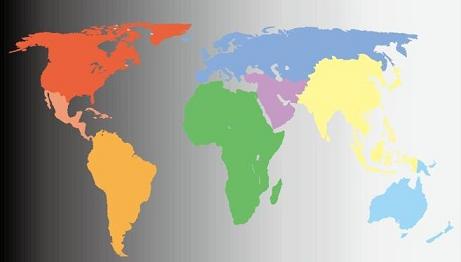New Trade Theory of International Trade takes a different approach from the Ricardian and the Heckscher-Ohlin models on why countries engage in international trade. Both Ricardo and Heckscher assumed constant returns to scale where to them if all factors of production are doubled then output will also double. But a firm or industry may have increasing returns to scale or economies of scale in way that when all factors of production are doubled, output more than doubles which will necessitate a bigger market and thus forcing firms to engage in international trade where there is a larger market. The New Trade Theorist noted that the bigger the size of a firm or industry the more the efficiency of its operations in that the the cost per unit of output falls as a firm or industry increases output. The increase in output must however be met with an increase in the market size if it has to be sustainable.
New Trade Theory of International Trade noted that the existence of economies of scale makes large firms to be more efficient than small firms, and the industry may consist of a monopoly or a few large firms. Production may be imperfectly competitive in the sense that excess or monopoly profits are captured by large firms. In other words New Trade Theory of International Trade on why countries engage in international trade is opposed to the assumption made in the Ricardian and Heckscher models that there is perfect competition in the market in that all income from production is paid to owners of factors of production and there is no “excess” or existence of monopoly profits. To New Trade Theorists countries engage in international trade because of the notion of economies of scale. To them the presence of scale economies leads to a breakdown of a perfect competition and creates more efficient firms which continue to expand on the markets because of increased outputs.
The New Trade Theorists explained that because engaging in international trade increases market size, this decreases the average cost in an industry described by monopolistic competition. They also noted that when countries engage in international trade variety of goods those consumers can buy also increases thus increasing their welfare. As average costs decrease, consumers also benefit from a decreased price.
Two types of economies of scale were considered in explaining that countries engage in international trade because of economics of scale. The first one is the internal economies in which average costs of individual firms will fall as they produce more output and become larger and the second one is the external economies of scale in which average costs of the industry in a country will reduce as it produces more output and grows larger.
New trade theory of International Trade argues that if the output required realizing significant scale economics represents a substantial proportion of total world demand for the product, the world market may be able to support only a limited number of firms based in a limited number of countries producing that product. Thus those firms that enter the world markets first gain an advantage that may be difficult for the other firms to match with. In the other words, a country may dominance in the export of a particular product where scale economics are important and where the volume of output required gaining scale economics represent significance proportion of world output.
This argument is the notion of first—mover advantages, which are the economics & strategic advantages that occur to early entrants into an industry. Because they are able to gain economics of scale; the early entrants into an industry may get a lock on the world market that discourages subsequently entry by other firms. The ability of first movers to reap economics of scale creates a barrier to entry. For e.g. in the commercial Aircraft Industry, the fact Boeing & Airbus are already in the Industry discourages new entry.
New trade theory of International Trade thus suggests that a country may dominate in the exports of a good simply because it was lucky enough to have one/more firms among the first to produce that goods. Thus the new trade theorists argue that the U.S leads in exports of commercials Jet aircrafts not because it is better endowed with factors of production required to manufacture aircraft, but because of the first movers in the industry. Boeing & MC Donald Douglas were US firms. As economies of scale result in an increase in the efficiency of resources utilization and home in productivity, the new trade theory identifies important sources of comparative advantages. Thus this theory stresses the role of Luck, Entrepreneurship and Innovation in giving a firm first mover advantages.
